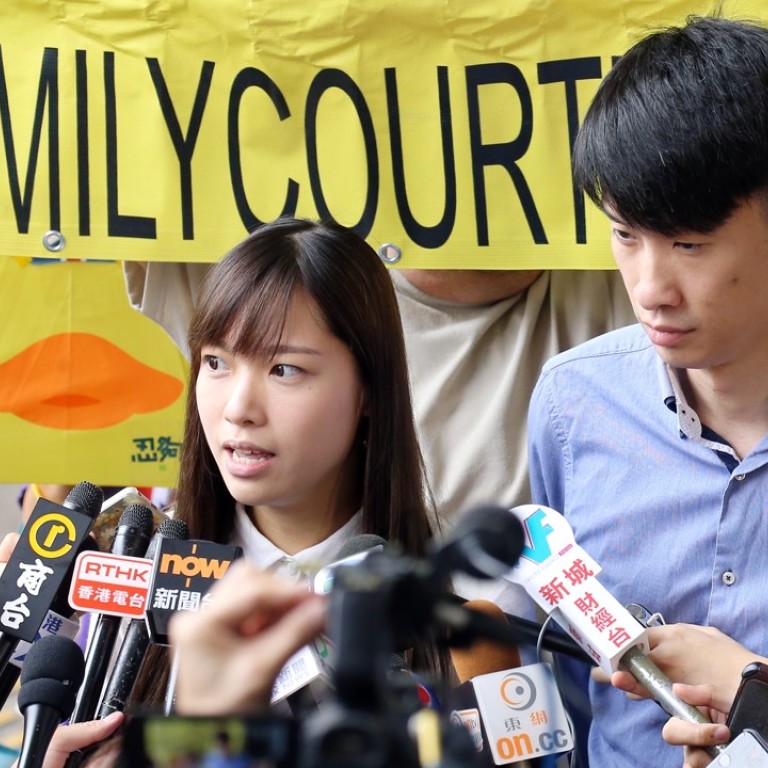
Ousted Hong Kong lawmakers Baggio Leung and Yau Wai-ching convicted for storming Legco meeting
Duo found guilty of illegal assembly after trying to force way into room to take oath of office in 2016
Acting Kowloon City Principal Magistrate Wong Sze-lai convicted Sixtus Baggio Leung Chung-hang, 31, and Yau Wai-ching, 26, of taking part in an illegal assembly on November 2, 2016.
Their three assistants, Yeung Lai-hong, 25, Chung Suet-ying, 26, and Cheung Tsz-lung, 30, were found guilty of the same charge for taking part in the episode, which left a few security guards injured, including one who collapsed.
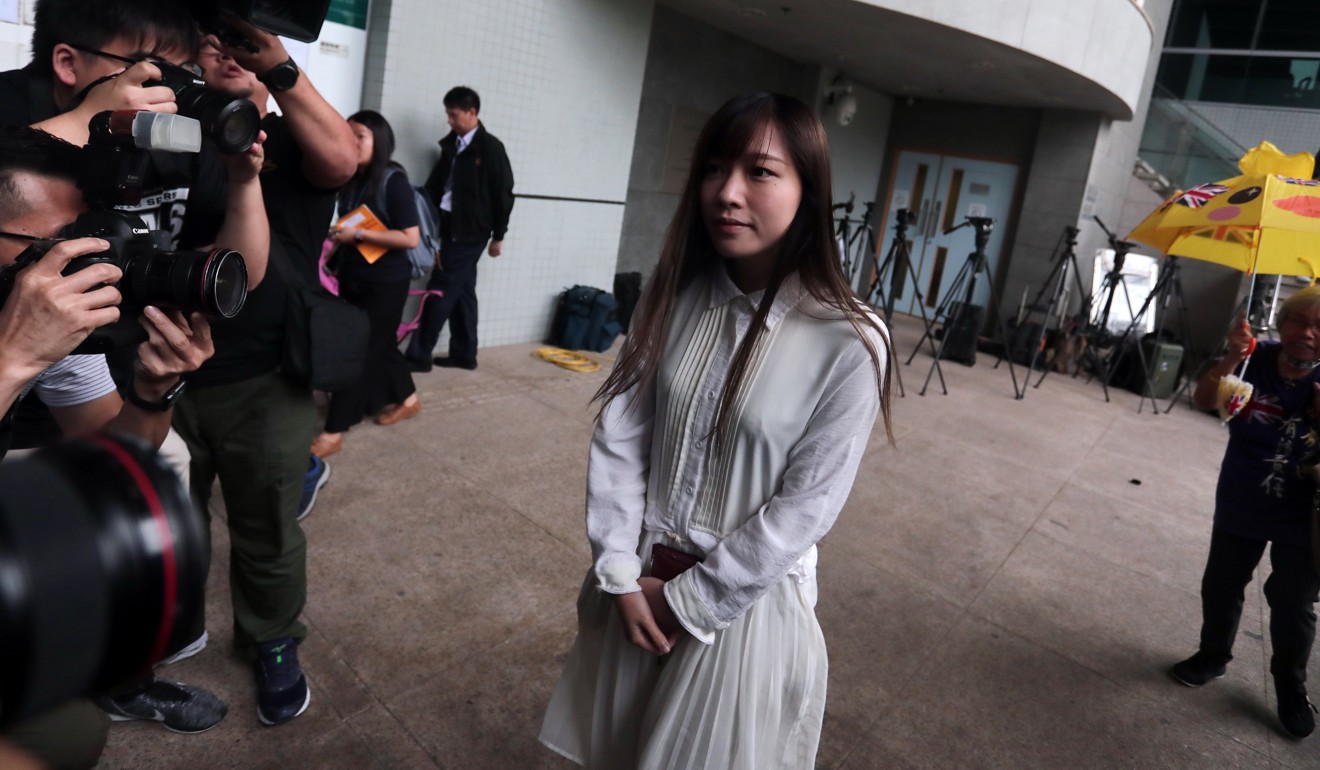
“A guilty verdict would leave us no choice but to lodge an appeal,” Leung told the Post.
Even if they are Legislative Council members, [they cannot] use that as an amulet to commit criminal behaviours
But in pronouncing the duo guilty on Friday, the magistrate stressed that this case had nothing to do with the pair’s status as lawmakers, but with “peace and order”.
“Even if they are Legislative Council members, [they cannot] use that as an amulet to commit criminal behaviours,” Wong said.
She found that the five had “acted together for a common purpose” to help Leung and Yau get inside the meeting that took place in Legco’s Conference Room 1. In doing so, they caused others to fear for “a breach of the peace”.
Wong granted the five bail until June 4, when she would sentence them.
The criminal charge stemmed from the duo’s contentious oath-taking in 2016. On November 2 of that year, Yau and Leung tried to storm Legco to retake their oaths after their anti-China antics during an earlier swearing-in ceremony in October led them to be barred from the chamber.
Their attempt to force their way in prompted Legco president Andrew Leung Kwan-yuen to move the meeting to a side conference room. All five were accused of storming that later meeting.
Several security guards testified during the trial that a chaotic scene unfolded, during which Leung, Yeung and Cheung hurled verbal insults at the guards. The two assistants helped Leung when he tried repeatedly to jump and grab hold of a door and sought to climb over the cordon set up by the guards. Meanwhile, Yau kicked and kneed a security guard in the leg during the fracas, they said.
A woman security guard collapsed, while others were injured during the scrum that formed in a narrow corridor comprising Leung and Yau’s group, journalists and guards.
The magistrate said the guards were “honest” and “reliable” in their testimony, praising them for “fulfilling their duty diligently”.
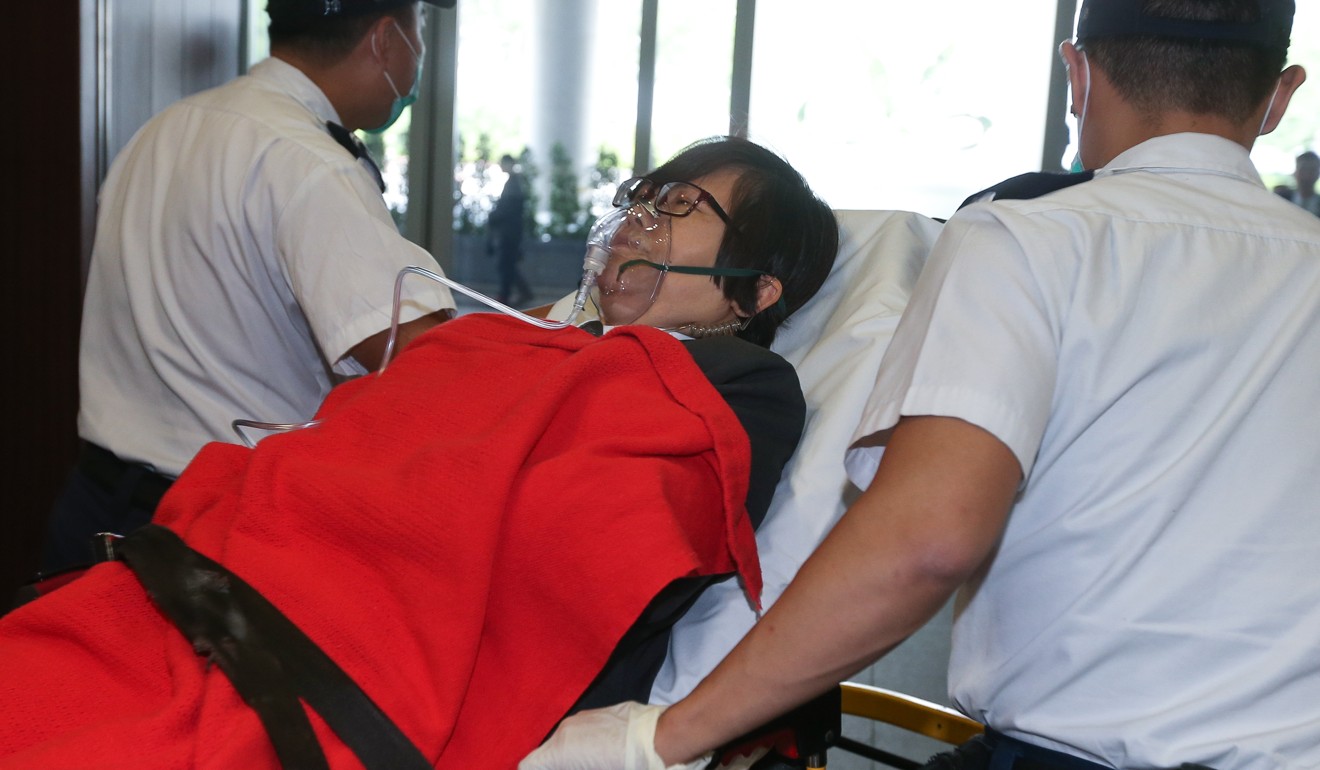
On the other hand, Wong refused to accept the testimony of Leung and Yau, which she said was at times “exaggerated”.
She slammed the pair for claiming they were also stuck and had felt unwell during the scuffle even though video footage showed that Leung was fit enough to jump and had eventually left the scene without difficulty.
“[Yau] was tidying her hair,” Wong said, describing the moment when Yau left the room.
The magistrate was also not convinced that the five had gathered outside the room without prior discussion, as the assistants were helping to lift Leung up during the confrontation.
She said the verbal abuse hurled by the assistants was insulting.
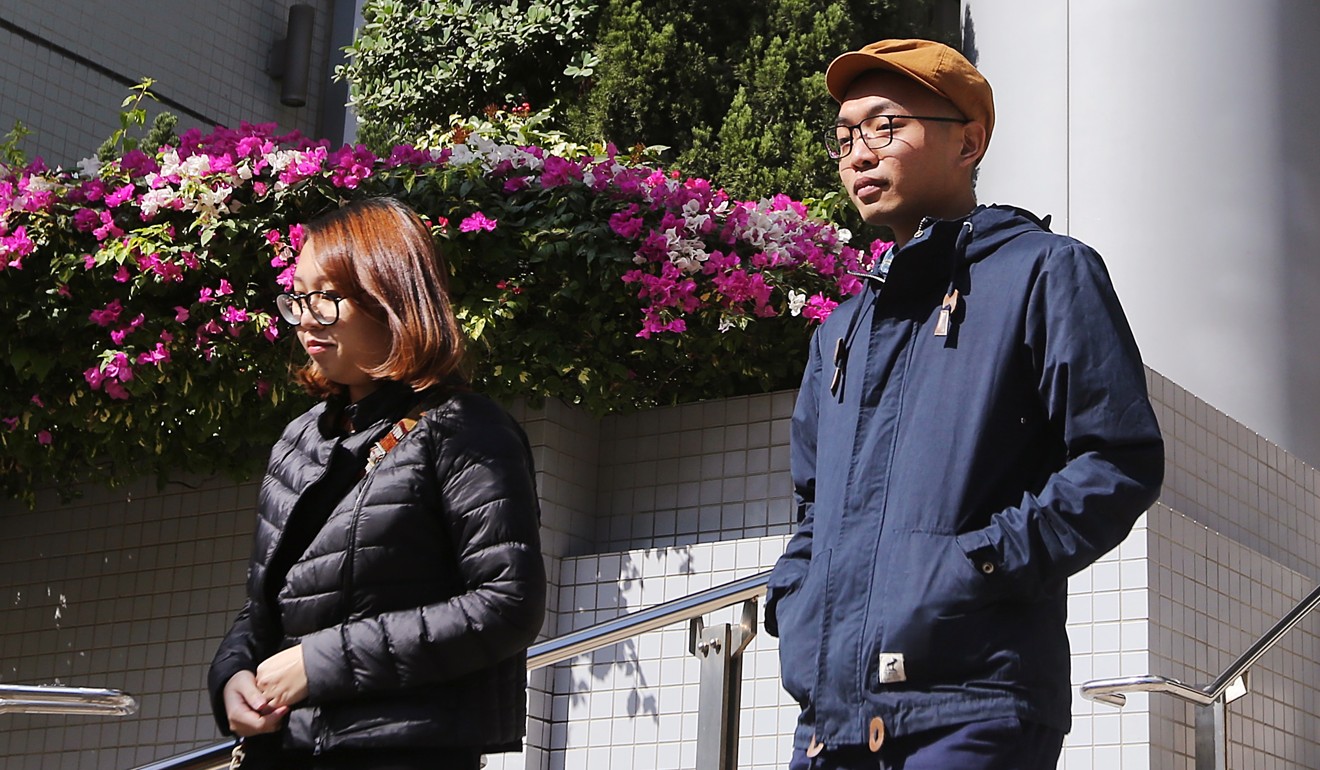
The pair argued that they had not expected such resistance from the guards because they had believed they were still lawmakers at the time. They added that it was against the Legislative Council (Powers and Privileges) Ordinance for anyone to obstruct lawmakers.
But Wong said this did not matter. She said the court had power to rule on them even if they were lawmakers because the case concerned not legislative affairs but order.
Even if they were lawmakers, Wong said, the duo were not entitled to use excessive force – just like someone with a valid movie ticket was not entitled to beat up a ticket collector just because he wrongly restricted the movie-goer’s access.
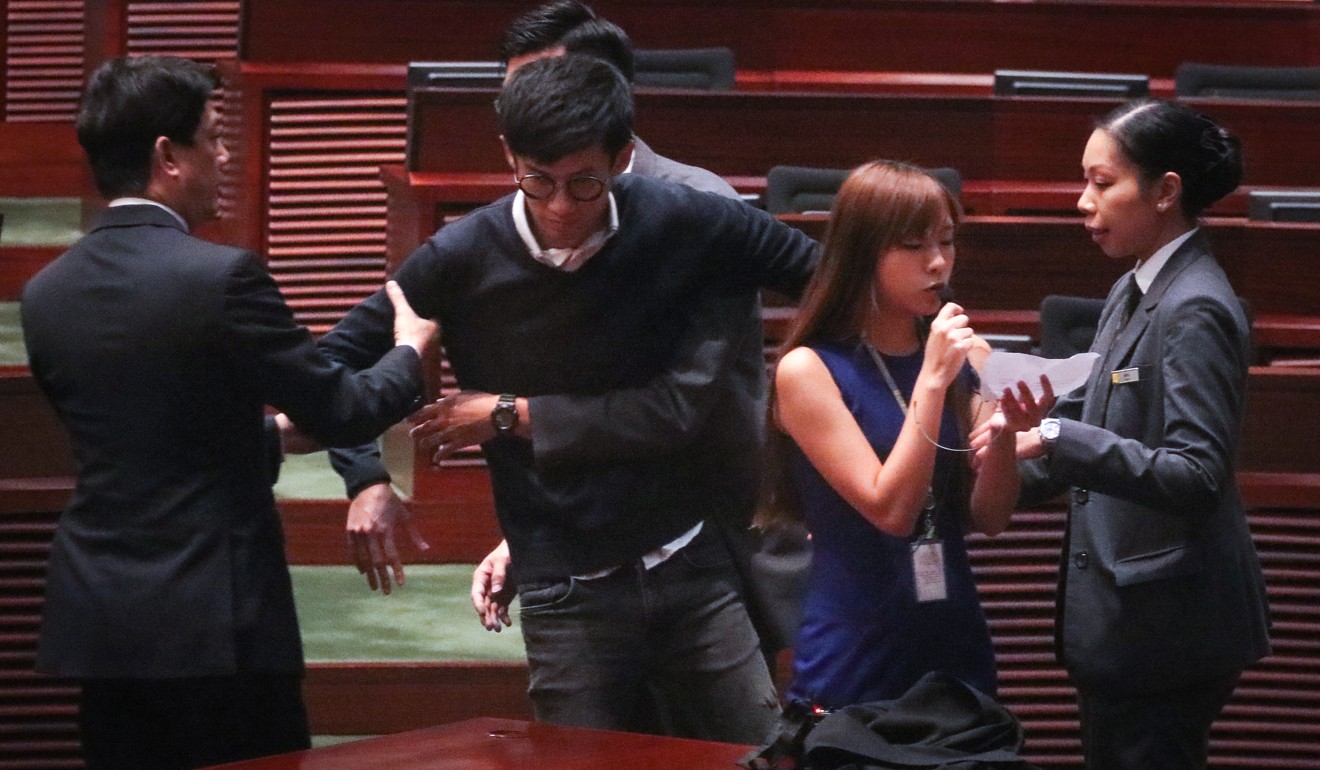
Asked in an interview days before the hearing whether he could have found a less confrontational way to re-enter the chamber, Leung told the Post he had been unable to.
He and Yau did not expect the crowd to be as large as it was, he said, claiming he had already taken certain measures to divert journalists’ attention and reduce the crowd size before heading to the room. Leung described his attempt to be sworn in as his duty to serve their voters.
“If I had a crystal ball, I would have locked [my assistant] up in the room,” Leung added. He and Yau said their three assistants should not have been dragged into the matter with them.
China’s top body lays down law on Hong Kong oath-taking
They noted the High Court did not officially unseat them until November 15 – 13 days after the incident.
To find them guilty, therefore, went against common law, which was never applied retroactively, Leung said.

